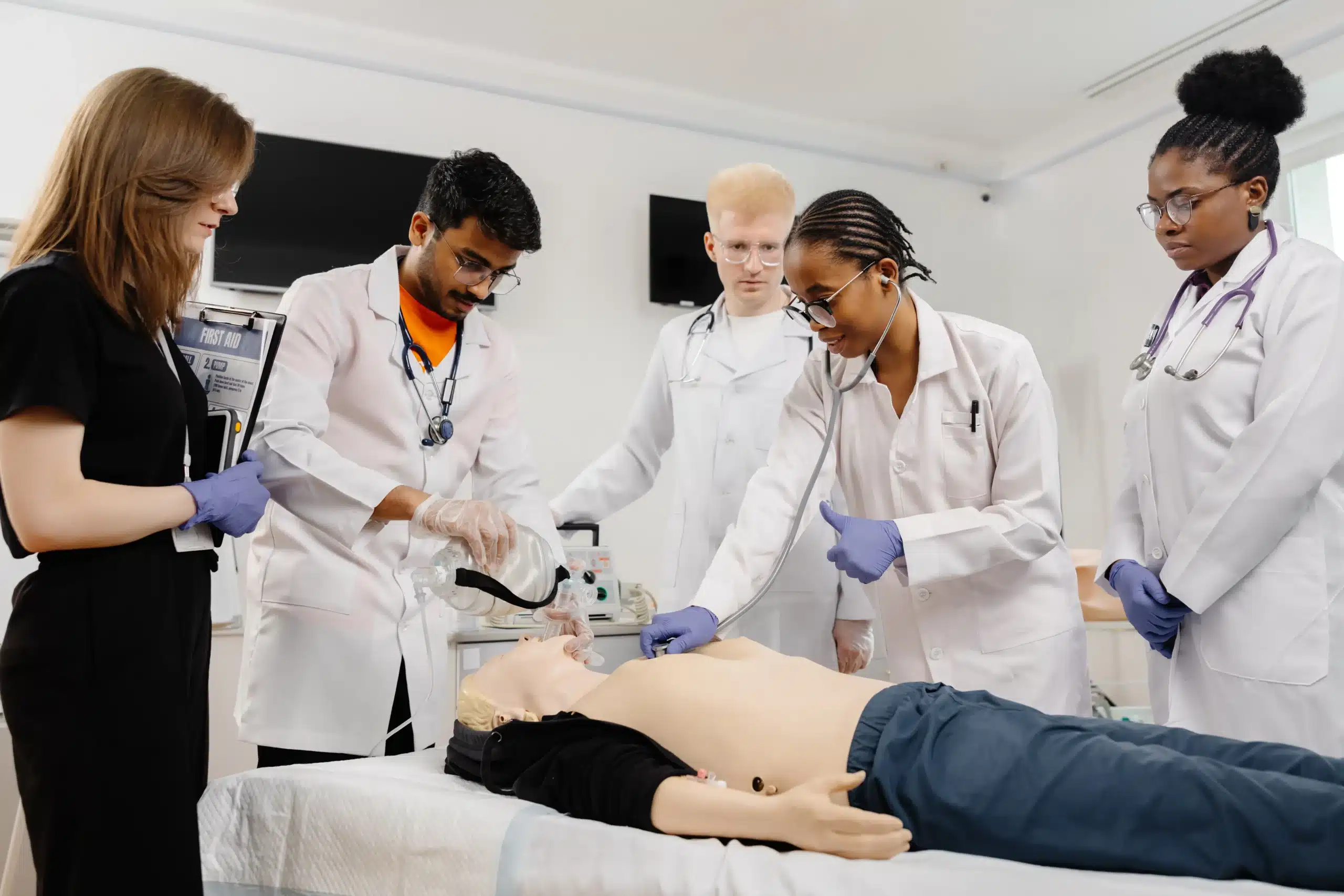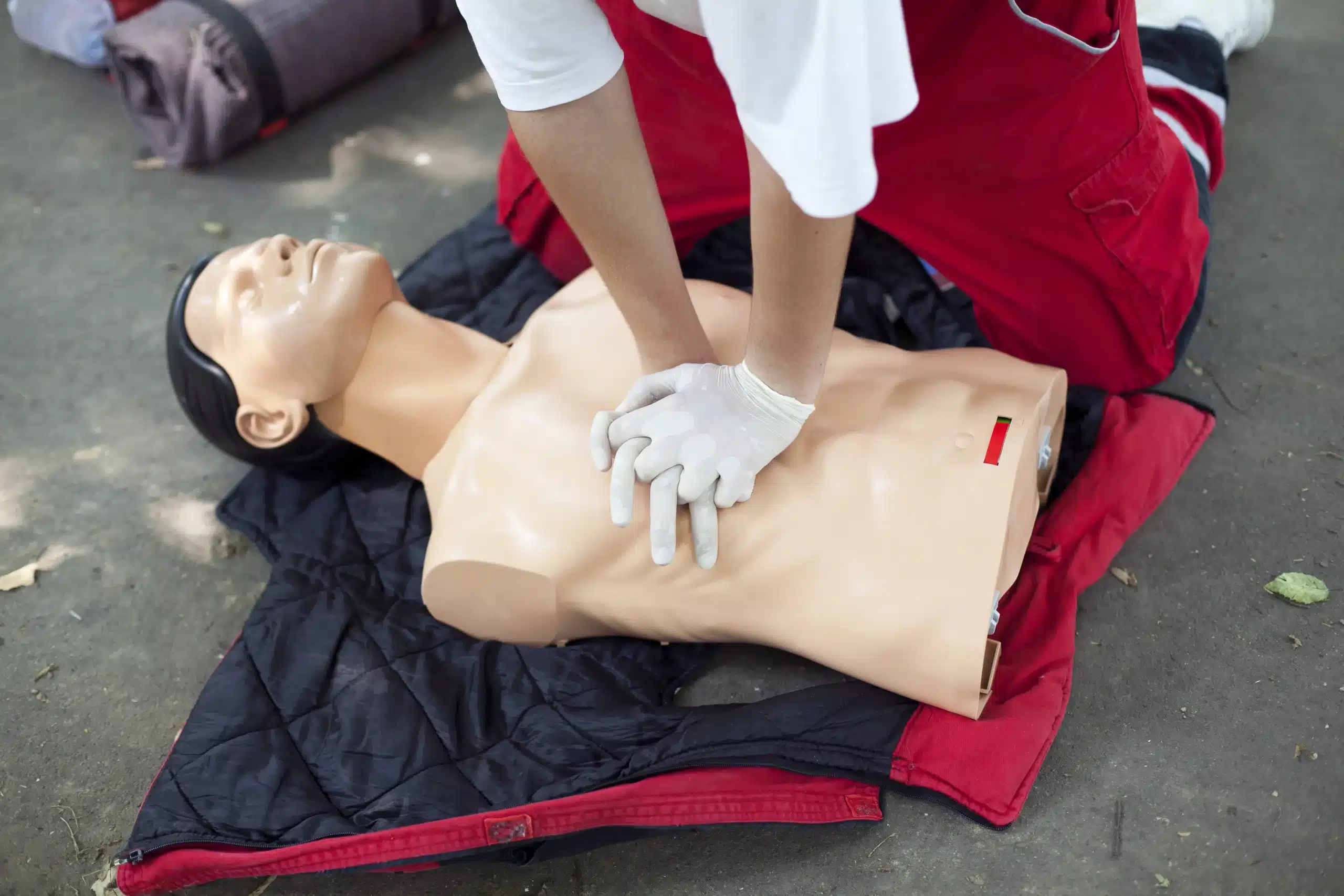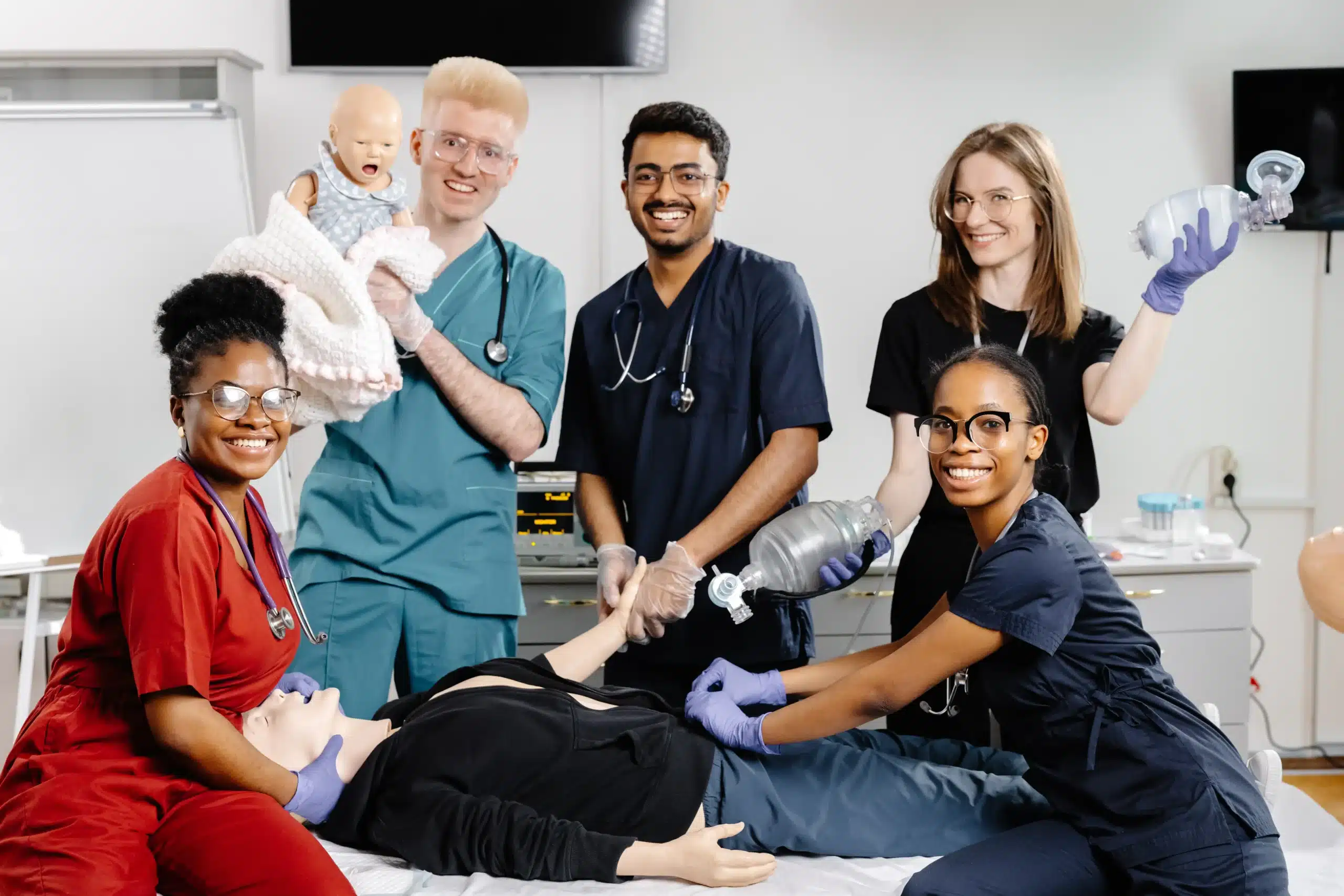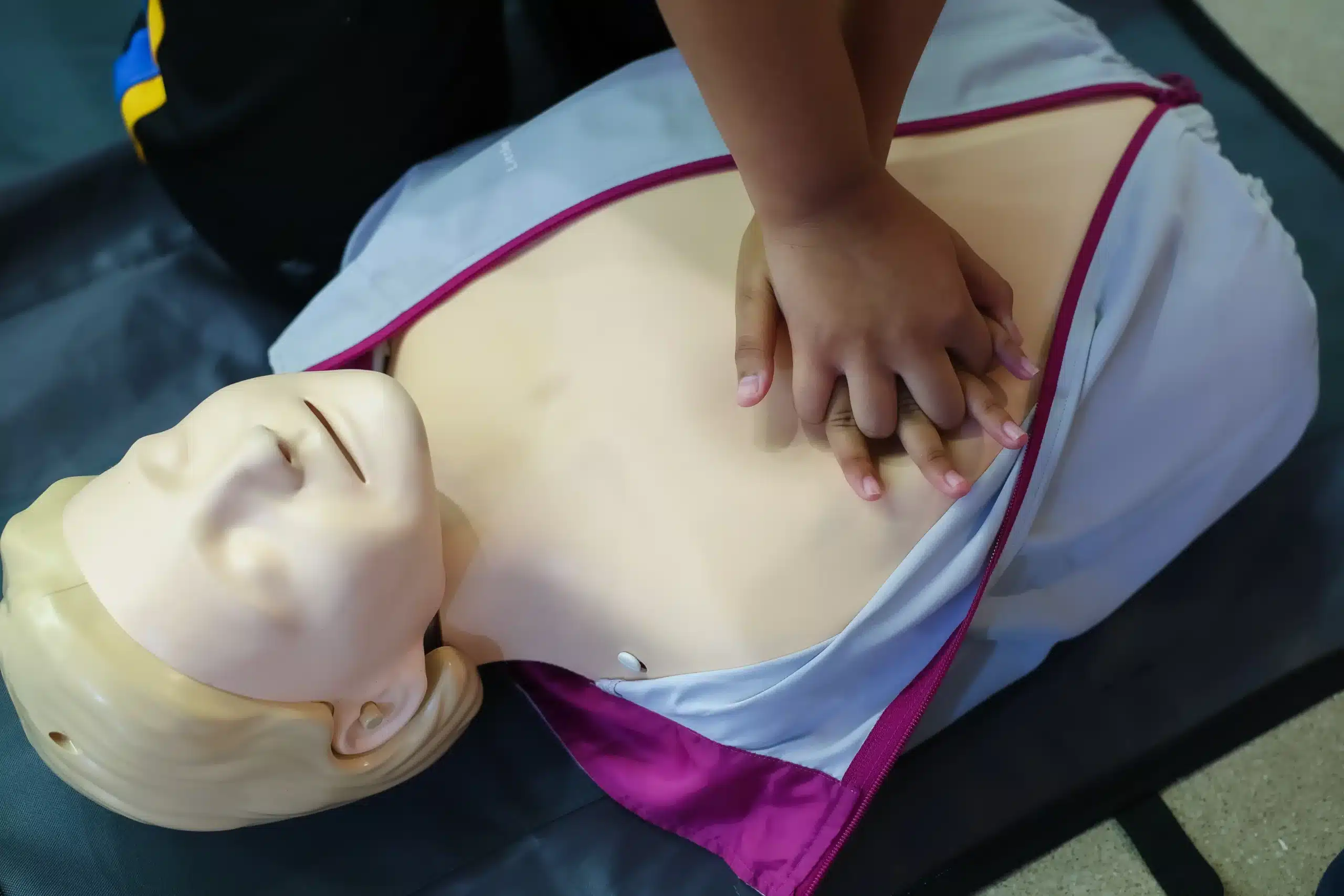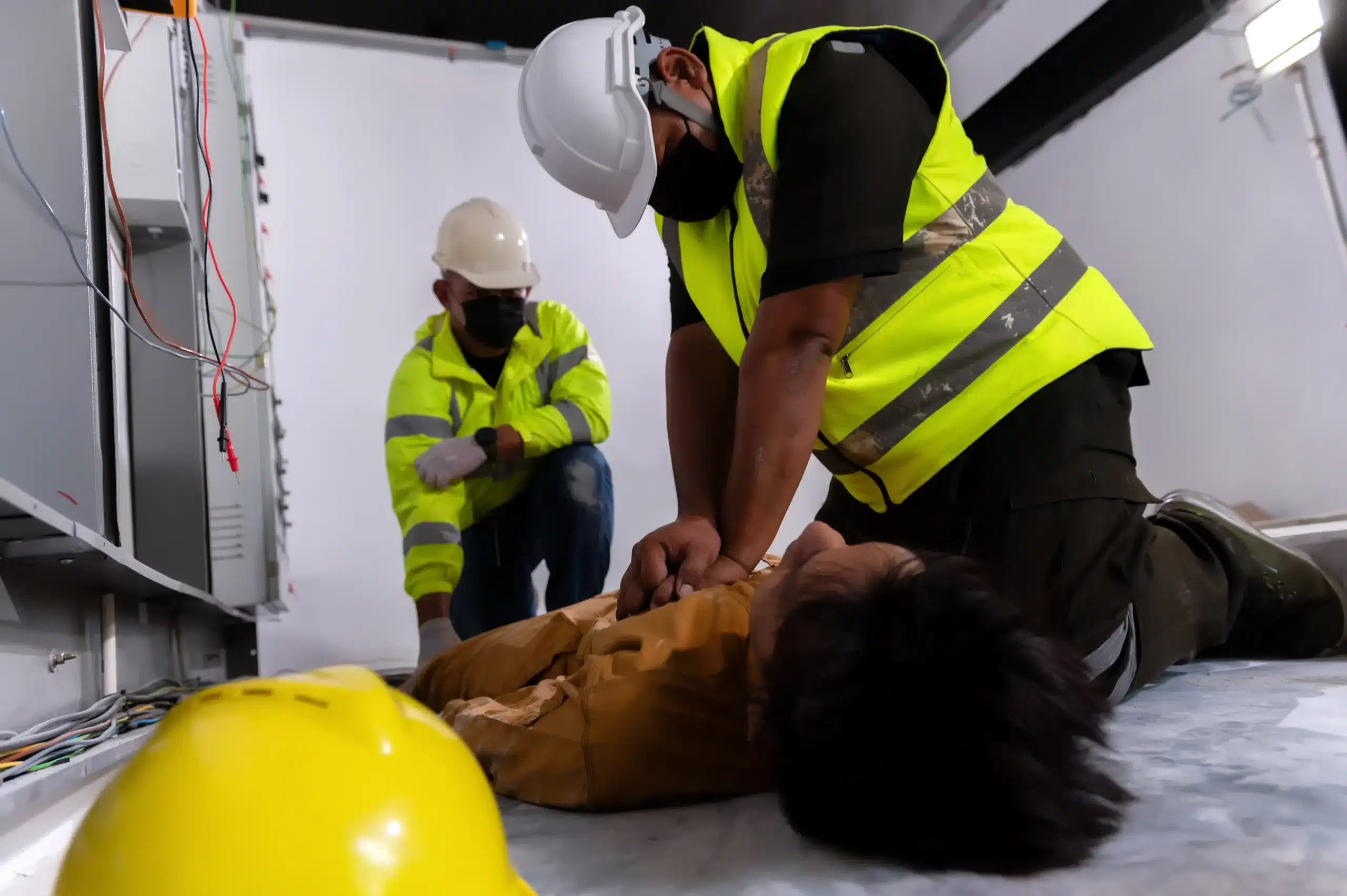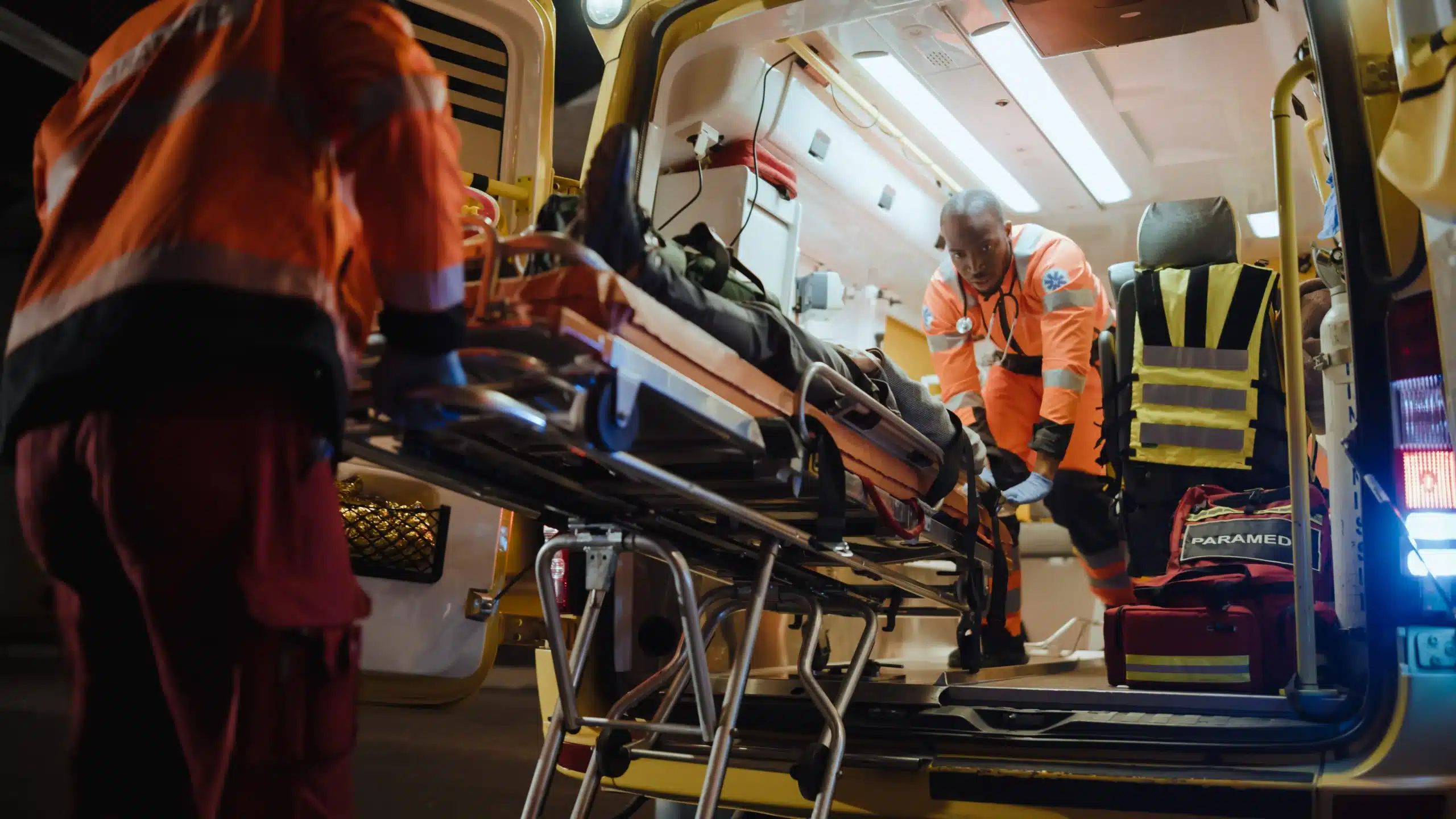Emergencies can happen when we least expect them. Basic Life Support (BLS) training equips you to respond effectively and potentially save a life. This comprehensive training covers essential skills like CPR, AED use, and recognizing the signs of a heart attack or stroke. Whether you’re a healthcare provider, a teacher, a parent, or simply someone who wants to be prepared, BLS certification is a valuable asset. In this article, we’ll explore the importance of BLS training, the different types of courses available, including bls courses in Delano and other nearby locations, and the process of getting certified. We’ll also discuss the benefits of BLS certification for various career paths and how to maintain your skills to ensure you’re always ready to respond in an emergency.
Key Takeaways
- BLS certification empowers you to act in emergencies: It equips you with practical skills like CPR, AED use, and choking relief, applicable in various situations.
- Choosing the right BLS course and provider is crucial: Consider factors like cost, accreditation, instructor experience, and student reviews to ensure a valuable learning experience.
- Maintaining your BLS skills is an ongoing commitment: Regular practice and refresher courses are essential for staying prepared and confident in your ability to provide effective assistance.
What is BLS?
BLS Definition and Purpose
Basic Life Support (BLS) takes CPR to the next level. It includes a more thorough initial patient assessment, airway management techniques, and high-quality CPR. BLS certification provides a deeper understanding and broader skill set for various medical emergencies. It’s designed for healthcare professionals, first responders, and anyone in a medical setting, forming the foundation for more advanced life-saving procedures. If you’re exploring a career in healthcare, BLS certification is frequently required.
Why is BLS Important?
BLS training empowers you to confidently and effectively respond to critical situations. From cardiac arrest and choking to severe bleeding, BLS equips you to deliver immediate care, significantly increasing a person’s survival chances. These skills are essential for healthcare providers and anyone who wants to be prepared for an emergency. Knowing BLS makes you a vital link in the chain of survival, providing crucial support until professional medical help arrives. It empowers you to make a real difference. Explore our BLS courses in Visalia to learn more.
Common BLS Misconceptions
Many believe only doctors and nurses need BLS certification. While essential to their training, BLS skills benefit a much wider range of individuals. Paramedics, medical assistants, teachers, lifeguards—even office workers—can gain from this training. Another misconception is that BLS is only applicable in hospitals or medical facilities. Emergencies can occur anywhere, anytime. BLS training enables you to assist, regardless of location. See how affordable gaining these essential skills can be with our low price guarantee. Don’t let these misconceptions prevent you from learning potentially life-saving skills.
BLS Providers in Delano
Finding the right BLS training provider is an important first step. Here are a few options for BLS certification in Delano, California:
Safety Training Seminars
Safety Training Seminars, a woman-owned AHA Training Center, focuses on high-quality American Heart Association courses. They offer BLS, ACLS, PALS, CPR, and First Aid training in several locations, making their courses accessible to students in Delano and nearby areas. For those closer to Fresno, their sister company, Fresno CPR Classes, offers similar courses. Check their website for the latest schedule and course offerings.
Delano CPR Classes
Delano CPR Classes provides AHA-certified courses designed for medical and healthcare professionals. They offer BLS, ACLS, PALS, and specialized courses like TNCC (Trauma Nursing Core Course) and ENPC (Emergency Nursing Pediatric Course). This range of options makes them a good resource for healthcare providers seeking comprehensive training in Delano.
Always CPR Training
Always CPR Training offers AHA BLS for Healthcare Provider courses, covering both initial certification and recertification. Their Delano location is convenient for local healthcare professionals looking to obtain or renew their credentials.
CPR Plus
CPR Plus offers training approved by the American Red Cross and the American Health & Training Institute. They provide CPR and First Aid training in Delano, including convenient on-site training options. This is a great option for groups who prefer to learn together in a familiar environment.
Understanding BLS Course Differences
Choosing the right BLS course boils down to a few key factors: what you’ll learn, how you’ll learn it, how long it takes, and which certifying organization best suits your needs. Let’s break down these considerations to help you make an informed decision.
Course Content Overview
BLS certification courses equip you with the fundamental skills to respond to life-threatening emergencies. You’ll learn CPR for adults, children, and infants, how to use an AED, and basic airway management. Many courses also include training on relieving choking and controlling bleeding. This comprehensive training prepares you to confidently handle various critical situations. For a closer look at what Safety Training Seminars offers, check out their BLS course page.
In-Person vs. Online Training
These days, BLS courses offer flexible learning options. Blended learning programs, like the HeartCode Complete system, combine online coursework with in-person skills sessions. This approach lets you learn the material at your own pace online, then practice your skills hands-on with an instructor. Some providers also offer fully in-person classes, which can be a great option for those who prefer a more traditional learning environment. If you prefer this route, consider the in-person BLS courses available in Visalia.
Course Duration and Scheduling
Most BLS certification courses can be completed in a single day, typically lasting between three and five hours. This makes it manageable even for busy schedules. Look for providers who offer classes on various days and times to find one that fits your availability. Safety Training Seminars, for example, offers daily BLS classes to accommodate different schedules.
AHA vs. Red Cross Certification
Two of the most widely recognized BLS certifications come from the American Heart Association (AHA) and the American Red Cross. While both organizations teach similar life-saving skills, there can be subtle differences in their course content and emphasis. It’s a good idea to check with your employer or licensing board to see if they have a preference. Safety Training Seminars focuses on AHA-certified BLS courses, which are widely accepted in healthcare settings. Understanding these nuances will help you choose the certification that best aligns with your professional goals.
BLS Certification: Process and Validity
BLS certification equips you with the skills to respond to medical emergencies like cardiac arrest and choking. Understanding the certification process, requirements, and validity ensures you’re always prepared to provide crucial aid.
Course Completion Requirements
BLS certification courses cover a range of life-saving techniques, including CPR for adults, children, and infants, how to use an AED, and basic airway management. You’ll also learn about bleeding control and emergency oxygen administration. These skills are essential for anyone working in healthcare and valuable for anyone who wants to be prepared for an emergency.
Getting Certified
You can find BLS certification courses online and in person through various organizations, including the American Heart Association. Safety Training Seminars offers convenient BLS certification options right here in Visalia. Certification is typically valid for two years, after which you’ll need a renewal. Often, renewal involves a shorter refresher course rather than retaking the entire course. Check out our RQI classes for efficient renewal options.
Certification Validity and Renewal
Your BLS certification remains valid for two years. It’s important to renew your certification before it lapses to avoid repeating the full course. Keep track of your expiration date and plan ahead to maintain your credentials and stay up-to-date on the latest life-saving practices. Contact us at Safety Training Seminars to learn more about our renewal courses and how we can help you maintain your BLS certification. We offer competitive pricing, backed by our Low Price Guarantee, and flexible scheduling to fit your needs.
Choosing the Right BLS Provider
Finding the right BLS provider is just as important as the certification itself. It can make all the difference in your learning experience and how prepared you feel. Here’s what to consider:
Course Costs and Comparisons
BLS course costs vary. Online BLS certification can range from $15 to $90, a good option for budget-conscious learners comfortable with self-paced study. In-person training, with its hands-on practice and instructor interaction, typically costs between $50 and $150. Group training, often used by workplaces, usually falls between $100 and $250. Private training, best for individualized instruction, ranges from $150 to $350. Knowing these price ranges helps you compare and find a course that fits your budget. Safety Training Seminars offers a Low Price Guarantee and you can view our BLS course schedule to find a class that works for you.
Discounts and Promotions
Before you sign up for a course, see if any discounts are available. Many providers offer promotions that can make training more affordable. Look for seasonal specials, group discounts, or deals for students and returning customers.
Accreditation and Certification Standards
Choosing an accredited provider is essential. Accreditation ensures the course meets recognized standards, making your certification widely accepted. Look for providers affiliated with reputable organizations like the American Heart Association (AHA). Safety Training Seminars is a woman-owned AHA Training Center, giving you confidence in the quality of instruction and the legitimacy of your certification.
Instructor Qualifications
A knowledgeable and supportive instructor is key to a positive learning experience. Look for instructors with significant experience and positive student feedback. A good instructor teaches effectively and creates a comfortable learning environment where you can ask questions.
Student Reviews
Reading past student reviews provides valuable insights into a course. Pay attention to comments about clarity, helpfulness, and the overall experience. Consistently excellent reviews show that a provider prioritizes student success.
Essential BLS Skills
BLS certification equips you with the skills to respond confidently during medical emergencies. These skills empower you to provide crucial care until professional help arrives. Let’s break down the key components of BLS training:
CPR Techniques
CPR is the foundation of BLS. You’ll learn proper chest compression techniques, including the correct rate and depth to maintain blood flow and oxygenation. BLS courses teach you how to effectively combine compressions with rescue breaths, a critical skill in keeping oxygen flowing to vital organs. For more information, check out this article on the importance of BLS training.
AED Use
Automated External Defibrillators (AEDs) can significantly increase the chances of survival during cardiac arrest. BLS training covers how to safely and effectively operate an AED. You’ll learn to assess the situation, apply the AED pads, and follow the device’s prompts to deliver a life-saving shock if necessary. Check out our RQI classes for more in-depth training on AED use.
Recognizing Cardiac Arrest and Stroke
Early recognition of cardiac arrest and stroke is vital for prompt treatment. BLS training teaches you how to identify the signs and symptoms of these conditions. You’ll learn how to quickly assess a situation and determine the appropriate course of action, including when to activate emergency medical services. Knowing how to spot these events can make a real difference in patient outcomes. This website offers a helpful overview of basic life support.
Choking Relief
BLS courses cover techniques for relieving choking in both adults and children. You’ll learn how to perform abdominal thrusts (Heimlich maneuver) and back blows to dislodge obstructions and restore airflow. These skills can be life-saving in a variety of situations, from a restaurant to your own home. For further details, explore this resource on the skills taught in BLS training.
Team Dynamics and Communication
Effective teamwork and communication are essential in emergency situations. BLS training often includes scenarios that emphasize working as a team. You’ll practice clear communication, assigning roles, and coordinating efforts to provide the best possible care. This collaborative approach ensures everyone is on the same page and working towards a common goal. Contact us to learn more about our BLS courses.
Prepare for Your BLS Course
Getting ready for your BLS course can make a real difference in how much you get out of it. Whether you’re a healthcare professional or just want to be prepared for emergencies, a little prep work goes a long way. At Safety Training Seminars, we want you to feel confident and prepared, so we’ve compiled a few tips to help you get ready for your upcoming BLS course.
Pre-Course Prep and Study Tips
Before your BLS class, take some time to familiarize yourself with basic life support concepts. Reading up on CPR, AED use, and choking relief can give you a head start. Resources like the Avive blog offer helpful information on getting BLS certified and understanding the basics. Knowing the fundamentals ahead of time lets you focus on mastering the practical skills during the training at our Visalia location.
What to Expect During Training
BLS courses combine theory and hands-on practice. Expect to learn the latest techniques for CPR, how to use an AED, and how to help someone who’s choking. You’ll also practice these skills in a simulated environment, giving you the confidence to act in a real emergency. Care Learning emphasizes the importance of CPR as a cornerstone of BLS training, so be prepared to dive into chest compressions and rescue breaths. Our instructors at Safety Training Seminars prioritize hands-on training to ensure you’re fully prepared.
Career Benefits of BLS
Having BLS certification can open doors in many careers. It’s a valuable asset for healthcare providers, of course, but it’s also helpful in other fields like education, childcare, and even some corporate settings. BLS skills are relevant for anyone, because emergencies can happen anytime, anywhere. Being certified shows employers you’re prepared to handle critical situations and can be a real plus on your resume. Check out our BLS course schedule to get started.
Maintaining Your BLS Skills
Your BLS certification is valid for two years, but staying sharp on your skills is an ongoing process. Regularly review the material and consider refresher courses like our RQI classes to keep your knowledge and skills current. Practicing with friends or family can also help you maintain those crucial life-saving skills. Remember, Safety Training Seminars is committed to offering the lowest prices in Tulare County, so refreshing your certification is both affordable and convenient. Contact us with any questions.
Related Articles
- BLS Certification in Walnut Creek: Your Guide – Visalia CPR Classes
- BLS Certification in Concord: The Complete Guide – Visalia CPR Classes
- BLS Certification in Tulare County: Your Complete Guide – Visalia CPR Classes
- BLS Courses in Tulare: Your Guide to Certification – Visalia CPR Classes
- American Heart Association (AHA) Training in Delano – Visalia CPR Classes
Frequently Asked Questions
Is BLS certification difficult to obtain?
BLS certification focuses on practical skills and clear understanding rather than rote memorization. The courses are designed to be manageable for people of all backgrounds, even those with no prior medical experience. A combination of online learning and in-person skills sessions makes learning flexible and convenient.
What’s the difference between BLS and CPR?
BLS builds upon basic CPR. Think of CPR as the foundation, while BLS adds essential skills like using an AED, giving rescue breaths, and understanding team dynamics during emergencies. BLS provides a more comprehensive approach to patient care.
How often do I need to renew my BLS certification?
BLS certification is typically valid for two years. Renewal often involves a shorter refresher course, allowing you to quickly update your skills and knowledge without repeating the entire course.
Why should I choose Safety Training Seminars for my BLS training?
Safety Training Seminars offers high-quality, AHA-certified courses at the lowest prices in Tulare County. Our convenient Visalia location, daily classes, and commitment to excellent customer service make us a great choice for anyone seeking BLS certification.
What if I have more questions about BLS certification?
We’re happy to help! You can reach out to Safety Training Seminars directly through our website’s contact page or give us a call. We can answer any specific questions you have and help you find the right course for your needs.
